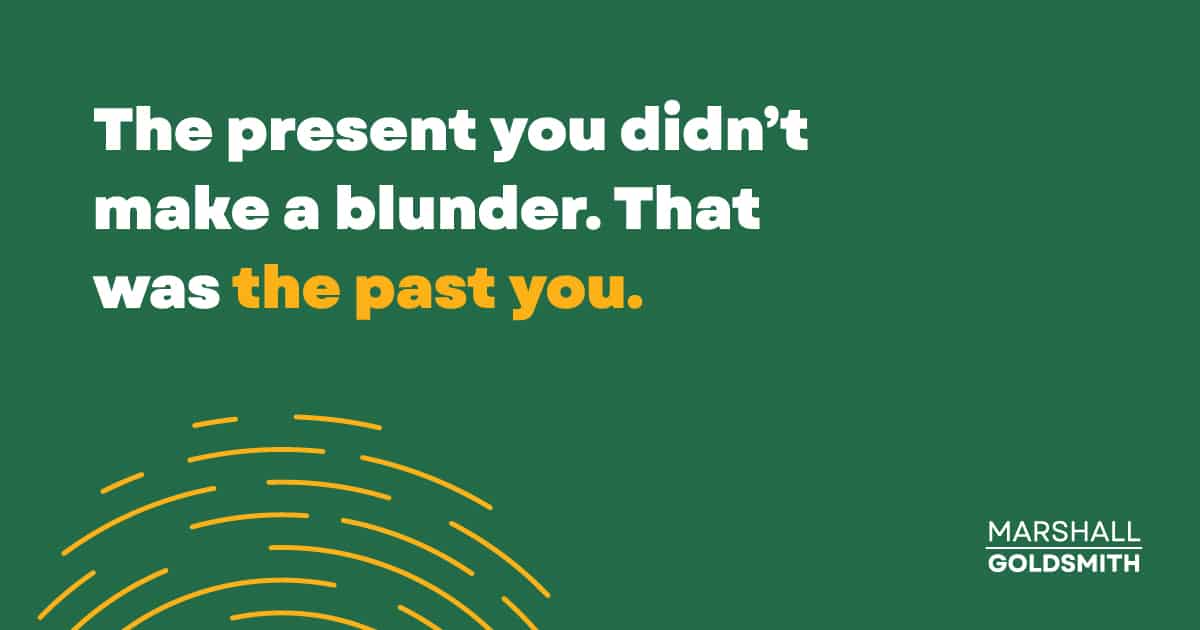Playing Favorites By Marshall Goldsmith There’s a reason I devote...
Chris Coffey, who along with Frank Wagner leads the Stakeholder Centered Coaching® certification in the U.S., has trained thousands of coaches. Chris provides a rare combination of being entertaining and dynamic while providing advice and stories from his extensive coaching experience that is both practical and applicable. He is a person that I trust to lead the training process for our behavioral coaches.
Recently I asked him what advice he has for people who are interested in becoming Stakeholder Centered Coaches and who may be starting up their coaching practice. Following is a short excerpt from our interview.
Marshall: Chris, what advice do you have for people who are interested in becoming Stakeholder Centered Coaches?
Chris: Great question, Marshall. First, we get, a lot of people who ask if we are going to drive business for them. The answer to that is clearly no. There are so many coaches out there and nearly anyone can be a coach. All they need is a business card.
When people ask me about being a Stakeholder Centered Coach, I ask them about their background and why they want to be a coach. I ask them what they will bring to their coaching. I describe what it is like to be a coach. They will have to get business, and this can be difficult. You won’t just get business because you’ve been certified.
So, for people who want to coach, are they passionate about helping people get better? Personally, I get a thrill when an executive calls me and tells me the coaching is working. Watching them grow and develop is hugely rewarding for me.
Being a Stakeholder Centered Coach also means working with stakeholders. I talk with each stakeholder and explain that the client has asked them to be a stakeholder. I emphasize that this is not going to take much of their time. That is number one – the coaching be a time burden to them.
I let them know that all they need to do is pay attention to what the coachee has picked to work on and be honest about his or her behavior in the minisurvey. Be honest and tell the truth. Don’t overinflate it and don’t hold onto the past.
Then, periodically, every four or five weeks, the coachee will ask the stakeholder how he or she is doing. Has the stakeholder noticed a difference in their behavior. And that’s it for the stakeholders, be honest and pay attention. That is all they have to do.
And, so managing this process is the job of the Stakeholder Centered coach and for those think they want certification, to ask themselves, Why do I want to do this? Is helping people change for the better something that I am really passionate about?
Our new book, Work Is Love Made Visible: A Collection of Essays about the Power of Finding Your Purpose from the World’s Greatest Thought Leaders, edited by Frances Hesselbein, Marshall Goldsmith, and Sarah McArthur was published October 23, 2018. The #1 New Release in Business Management on Amazon,Work Is Love Made Visible is available now on Amazon and Barnesandnoble.com!

Adding Too Much Value Won’t Get You There By Marshall...
C-Suite Master Class: No, But, However By Marshall Goldsmith Continuing...
The Doerr Institute: Expanding the Market for Coaches By Marshall...
Making Leadership Development Part of the College Degree at Rice...
Sanyin Siang – Winner of the Thinkers50 Marshall Goldsmith Coaching...
Thinkers50 Marshall Goldsmith Distinguished Achievement Award in Coaching – Nominees...
Leading with Influence: What Is Influence360°? By Marshall Goldsmith Founder...
Are You a Dominator, Manipulator, Persuader or Influencer? By Marshall...
Leading with Influence: Redefining Modern Influence Part 2 By Marshall...
My mission is simple. I want to help successful people achieve positive, lasting change and behavior; for themselves, their people, and their teams. I want to help you make your life a little better. With four decades of experience helping top CEOs and executives overcome limiting beliefs and behaviors to achieve greater success, I don’t do this for fame and accolades. I do this because I love helping people!
As an executive educator and coach, I help people understand how our beliefs and the environments we operate in can trigger negative behaviors. Through simple and practical advice, I help people achieve and sustain positive behavioral change.